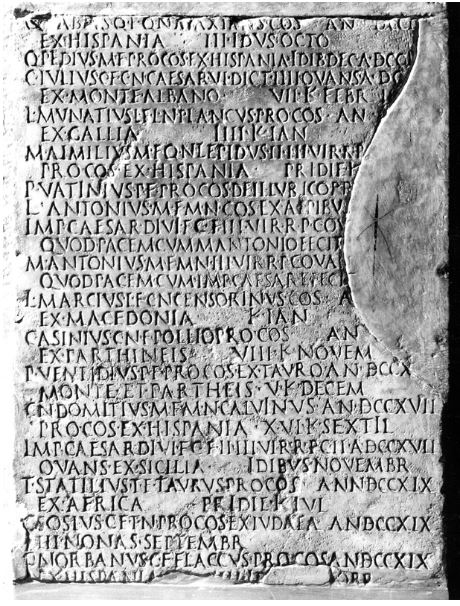Crisis, opportunity and institutional change: the case of the tresviri rei publicae constituendae
The transition from the Roman Republic to Principate—Syme’s "Roman Revolution"—was a period of substantial institutional breakdown, flux, and reinvention. In the course of less than a century, an established, robust oligarchic republic was replaced by what later imperial historians recognised immediately as a world empire. The rule of the triumvirate, the long decade of uneasy power-sharing between C. Iulius Caesar (Octavianus), M. Antonius, and M. Aemilius Lepidus from 42–31 bce, was a particularly intense period of innovation, experimentation, and institutional upheaval, the outcomes of which were formative for the emerging imperial edifice. A critical overarching question, then, is how to understand and interpret the institutional changes during this time: what were the major factors shaping the transformation of the Roman world?
This paper will draw on new institutional frameworks to present a working answer to this question, concentrating on a case-study of the annual magistracies (especially the consulship) under the triumvirate. These underwent a profound evolution from 42–31, but this is often explained through a narrative of the needs of the tresviri themselves. The paper seeks to problematise this view by placing the changes in context and querying the reception of innovations and their cultural impact across the period. It will start with a brief discussion of some useful new institutional approaches, which emphasise the feedback between agents, their actions, and the underlying institutional constraints. The paper will then move to investigate specific examples of major structural changes under the triumvirate, including the normalisation of designated and suffect magistracies, the new emphasis on restoration of public works through the aedileship, and the intensification of triumphs granted to non-tresviri.
Overall, this paper, through the use of new institutional frameworks, will cast a new eye over the rapid and transformative change in political institutions at Rome between the late Republic and the Principate. In so doing, it will demonstrate the utility and benefits of application of elements of these approaches to study of the Roman world.
Dr. Bradley Jordan is postdoctoral fellow at the Department of Archaeology, Conservation, and History (IAKH), University of Oslo
